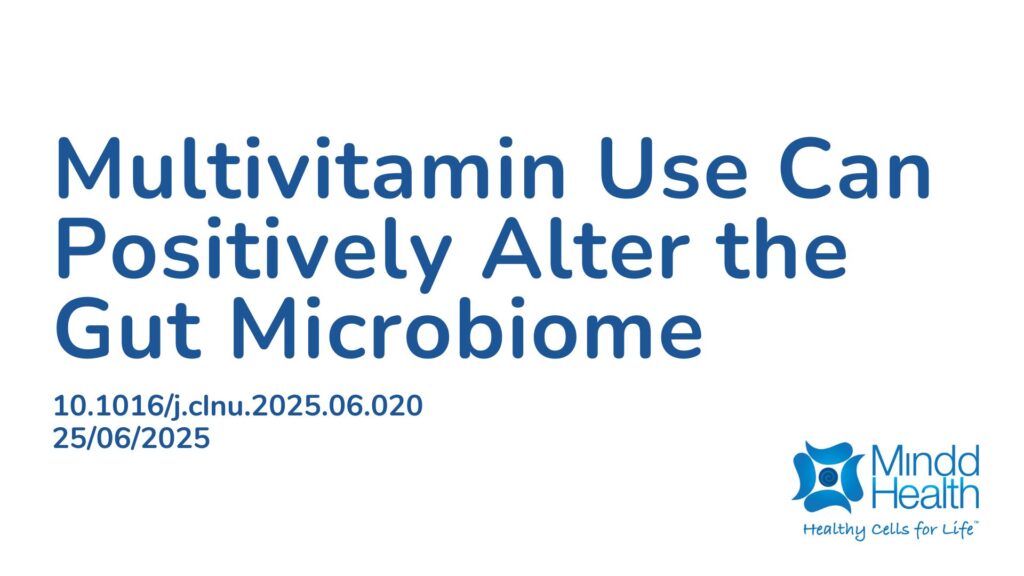Summary:
This randomized controlled trial investigated whether multivitamin and multimineral (MVMM) supplements affect the gut microbiome in healthy adults. Twenty-eight participants followed a controlled diet and received either a 10-day MVMM supplement, containing near-daily recommended doses of 23 micronutrients, or no supplement. Compared to the no-supplement group, MVMM intake led to a decrease in certain types of gut bacteria. Levels of key microbial byproducts such as short-chain fatty acids like propionate and butyrate, were elevated. These changes suggest shifts in gut microbial activity and metabolism. Background diet influenced the microbial response to MVMM, with saturated fat and carbohydrate intake linked to reductions in specific bacterial groups, and higher intakes of vitamins B2, B12, E, and iron associated with additional changes in gut microbiota. Overall, short-term MVMM supplementation in healthy individuals altered gut microbiota composition and increased levels of certain microbial metabolites, with dietary patterns also shaping the magnitude of these effects.
Abstract:
Background & Aims: Studies in-vitro and in animals propose that vitamins and minerals can alter the human gut microbiome. Human trials replicating these findings are scarce or used micronutrient supplementation in supraphysiological doses. We explored the effect of multivitamin/multimineral (MVMM) supplementation on the gut microbiome, and how participant’s background diet can modify this effect. Methods: In a randomised, controlled, cross-over study, 28 healthy adults (68% female, mean [SD], 33 [13] years]) received either a MVMM supplement containing dosages close to the UK dietary recommendations for 23 micronutrients (intervention period) or no supplement (control period), for 10-days, separated by a 15-day washout period. Participants’ diet was recorded and replicated between the two periods. Faecal microbiota composition was profiled using 16S rRNA sequencing, metabolome with 1H NMR, short chain fatty acids (SCFAs) with gas chromatography, and sulphide concentration with colorimetry. Associations between background diet and microbiome responses during MVMM supplementation were explored using machine learning. Results: Following MVMM supplementation, the absolute abundance of Lachnoclostridium and UCG_005 taxa were lower, while the concentrations of total SCFAs, specifically propionate and butyrate, and total sulphide were higher than the control period. Compared to baseline, MVMM supplementation decreased the absolute abundance of Desulfobacterota, Actinobacteriota, Bifidobacteriaceae, Erysipelatoclostridiaceae and Veillonellaceae, and increased the concentration of propionate. Background dietary intakes of saturated fat and total carbohydrates related with the MVMM-induced effect of decreasing Desulfobacterota. Likewise, the intakes of vitamins B2, B12, and E, along with iron, related with the effect of MVMM on decreasing Erysipelatoclostridiaceae. No changes were observed within the control period. Conclusion: In healthy adults, short-term MVMM supplementation influences the gut microbiota composition and diet-originating microbial metabolites and potentially host health.
Article Publication Date: 25/06/2025
DOI: 10.1016/j.clnu.2025.06.020



